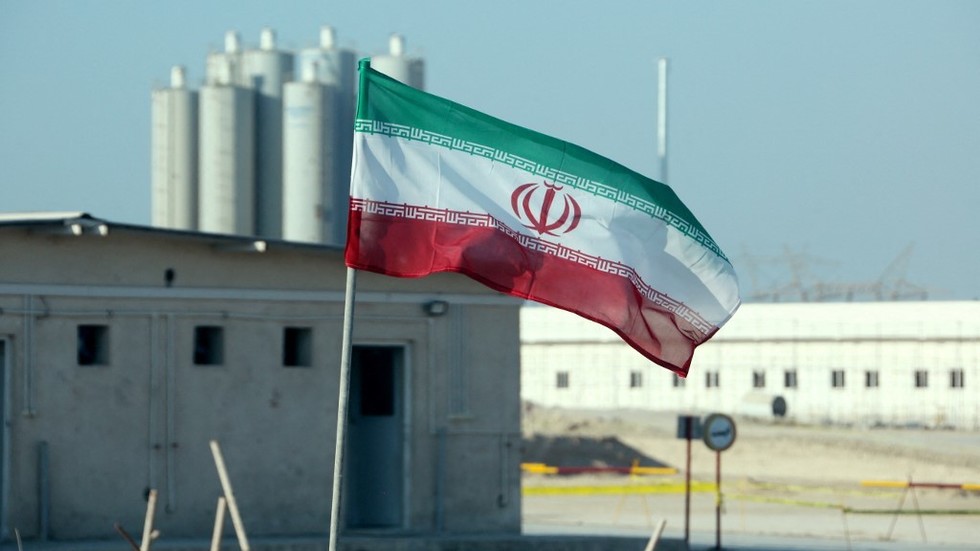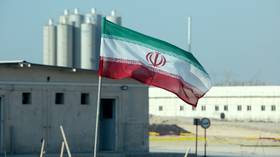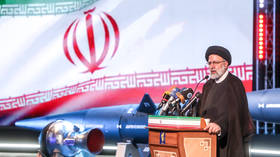
The International Atomic Energy Agency has described the move as “profoundly regrettable”

An Iranian flag flies at the Bushehr nuclear power plant in Bushehr, Iran, November 10, 2019 © AFP / Atta Kenare
International Atomic Energy Agency Director General Rafael Grossi has condemned Iran’s “disproportionate and unprecedented” expulsion of senior UN inspectors from its nuclear facilities. Iran made the move in response to accusations from the West that it was covertly enriching uranium.
Iran informed the IAEA that it had expelled “several experienced Agency inspectors,” Grossi said in a statement on Saturday. These inspectors were involved in monitoring Tehran’s compliance with the nuclear Non-Proliferation Treaty (NPT), a 1970 agreement under which signatories without nuclear weapons agreed not to develop them.
While Iran is permitted by the NPT to revoke the credentials of inspectors, Grossi called Tehran’s decision “disproportionate and unprecedented.” While Grossi did not state how many inspectors had been barred, he said that the decision affected “about one third of the core group of the Agency’s most experienced inspectors” in Iran.

Read more
“This profoundly regrettable decision by Iran is another step in the wrong direction and constitutes an unnecessary blow to an already strained relationship between the IAEA and Iran,” he said.
The Iranian Foreign Ministry said that it booted the inspectors in response to the Western powers using the IAEA “for their own political purposes.”
This statement was an apparent reference to an announcement by France, Germany, and the UK that they would maintain sanctions on Iran over its alleged non-compliance with the 2015 Iran Nuclear Deal, which offered Tehran limited sanctions relief in exchange for a pause on its uranium enrichment activities.
Separately, the US, UK, and 61 other NPT signatories demanded earlier this week that Iran explain the presence of uranium traces at three undeclared nuclear sites. These traces were discovered by IAEA inspectors late last year. A report by the agency stated that some particles had been enriched to 83.3% purity, just below the 90% threshold for nuclear weapons use.
Iran has repeatedly denied that it is seeking a nuclear weapon, and insists that its atomic research is strictly peaceful.




